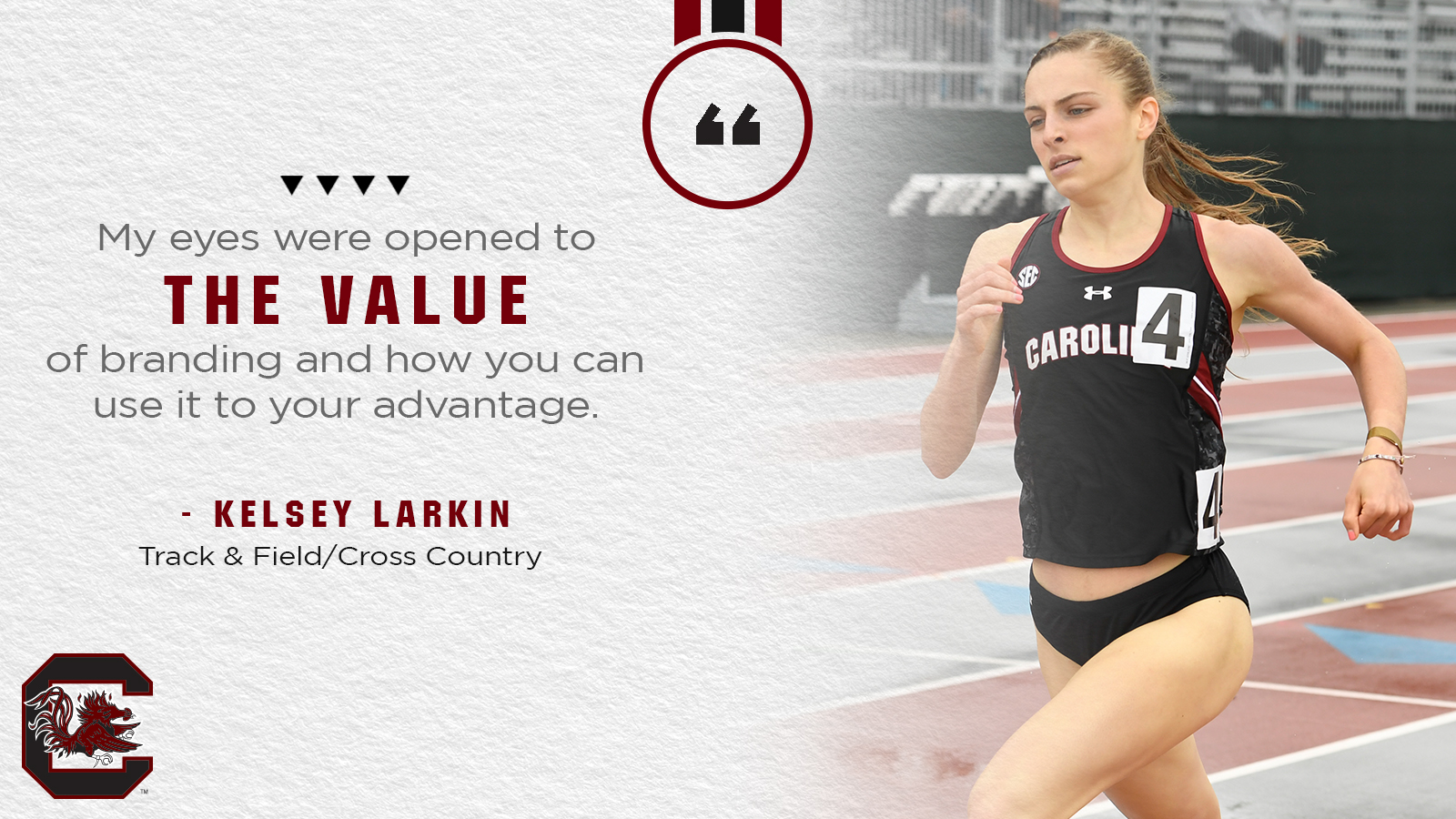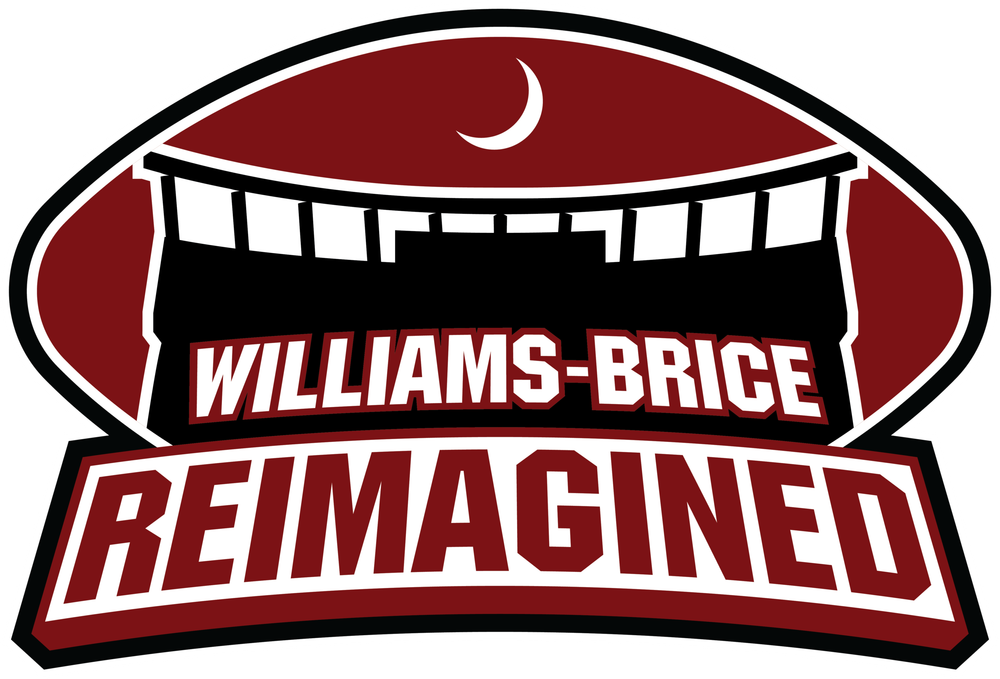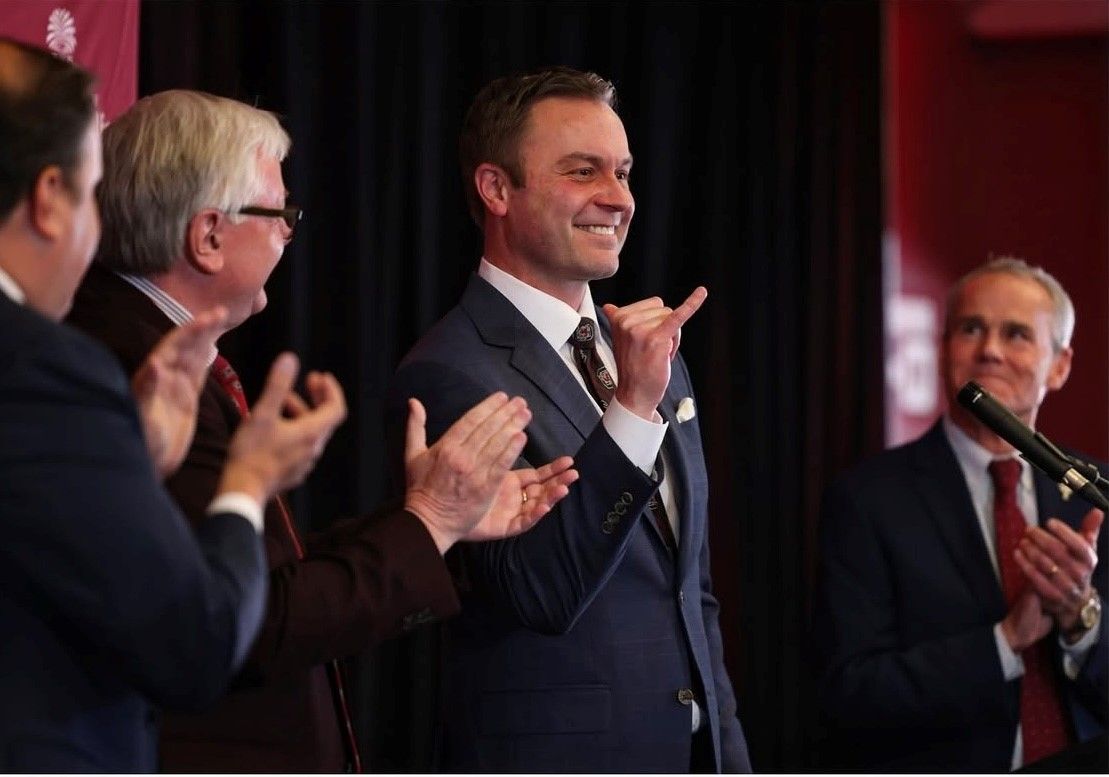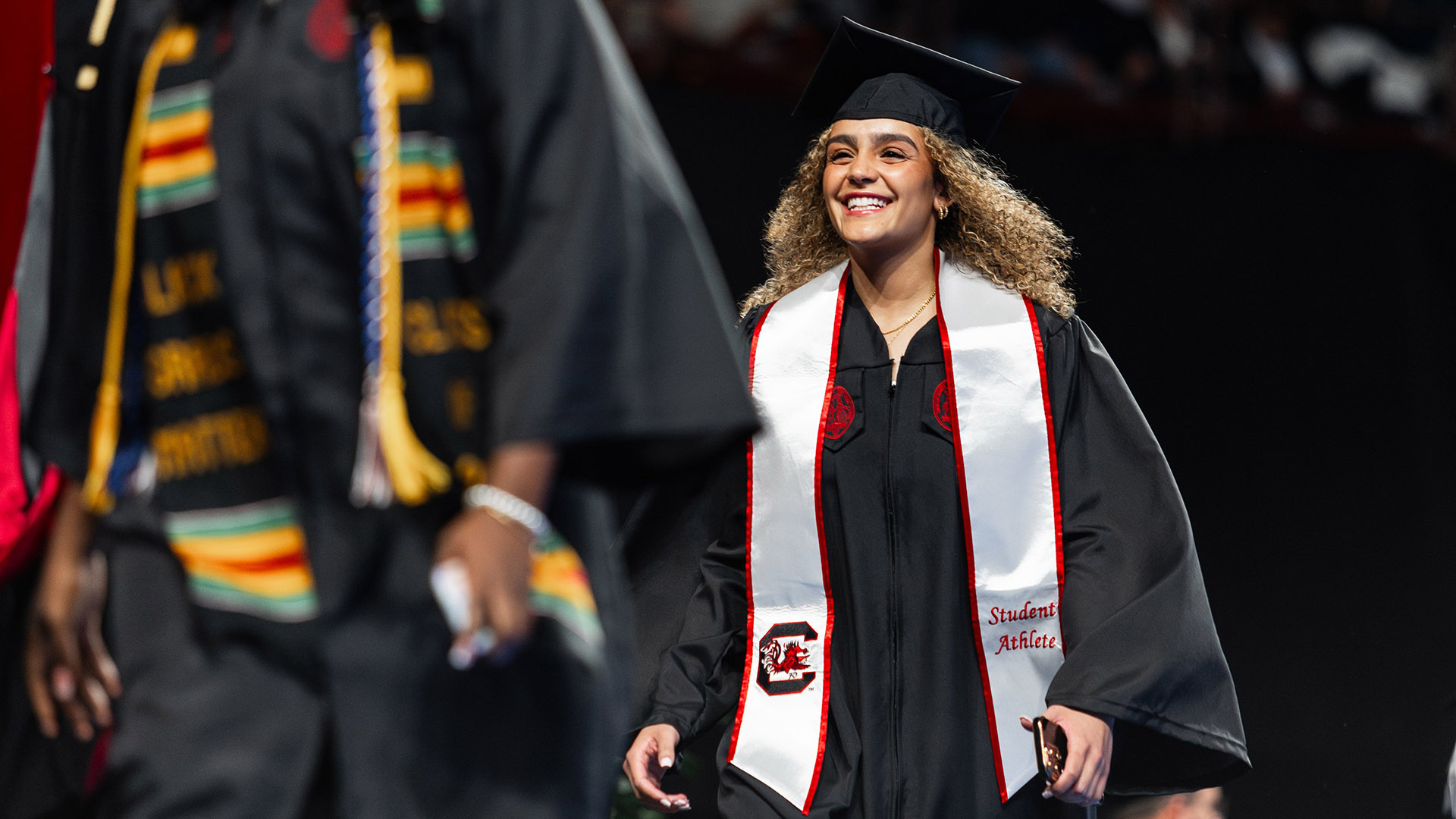
Gamecock CEO Summer Huddle Series kicks off with digital branding discussion
Gamecock CEO kicked off its Summer Huddle Series for South Carolina student-athletes last week with a live Zoom session focusing on personal branding. Gamecock CEO is South Carolina’s student-athlete development program. Christopher Aumueller, a former tennis player at Nebraska and now CEO and founder of the sports marketing agency FanWord, gave the student-athletes his perspective on the importance of taking control of one’s own digital brand and why you should care about your personal brand.
“You don’t have to be the greatest student-athlete in school history to build a personal brand,” Aumueller said. “If you want to establish a loyal following and have a personal brand, make people care about you. Make people talk about you. Make them remember you, and make people see you as more than just an athlete. While your sport is part of who you are and what people might know you for, it shouldn’t define you.”
“I never really thought of myself as having my own personal brand,” said rising senior swimmer Jenna Pehowski, who is studying computer science with a minor in business administration. “While being a student-athlete comprises a huge part of my life, it is not my only defining quality, so building myself into a brand that incorporates all of my interests will definitely help me in the future.
“The quote ‘Make us care. Make us talk. Make us remember’ shared during the presentation stood out because it basically sums up every marketing or branding strategy into a few words. Companies that make people care, think, and remember are most likely the most successful so that quote should be the goal in a strong branding campaign.”
Aumueller noted that social media can be the most powerful asset in building that personal brand.
“I had always looked at social media as a social activity,” said Kelsey Larkin from track & field/cross country, who recently earned her degree in biology and will be attending medical school in the fall. “My eyes were opened to the value of branding and how you can use it to your advantage.”
“I like to simplify things a lot,” Aumueller said. “Replace brand with reputation. It’s not entirely accurate but it’s an easy way to make more sense of this. Everything you do online that does or could impact your reputation falls into this category of digital branding. This does not just mean your social media channels; It also means if you have a web site and how you interact with folks in chat rooms or discussion boards. It also means how you write and send emails. All of this really matters.”
Aumueller told the student-athletes that they should care about their personal brand because it can impact their lives on and off the field during and beyond their days as an athlete. He broke down the financial and professional impact this care can have on the individual’s lives.
“The stronger your personal brand, the more financial opportunities you have,” Aumueller said.
“I had never really thought about using social media for branding for a cut and dry profession in the medical field, but he opened my eyes to the opportunities you can use it,” Larkin said. “If there is something I feel strongly about, I can use these social media platforms to get my message across and that can lead to a larger following and then I can use that to build up my business or make connections to other companies.”
“Everything you do online impacts your reputation.”
– Christopher Aumueller
In elaborating on the fact that most college student-athletes will not become professionals in their sport, their positions on social media could greatly impact their professional careers after sports.
“A personal brand may not land you a specific job, but I can assure you that from an employer point of view, when people apply for a job with us, we do look at your social media profiles and your digital footprint,” Aumueller said. “If we find anything that you stand strongly for, something that is the complete opposite of what we stand for, I can assure you it will have an impact in how we look at you and whether or not you are a fit for the company.”
“I honestly checked my phone during parts of the presentation just to see what was posted on my accounts,” Pehowski said. “We talked about how your nine most recent posts are basically a digital resume, which made me curious to see what someone looking at my posts would see. I tend to post pictures with friends or family or about my sport, which are all super important to me, so I was happy with my digital resume.”
He also discussed the importance of protecting your personal brand and that people have ways of finding content even if it’s deleted.
“The internet does not forget. It’s not just about your posts,” Aumueller said. “People see the content that you like even if you don’t make a comment on something. Think twice before you post. If you’re not sure if what you’re about to post is smart, run it by somebody first.”
The student-athlete were also reminded that they have responsibilities to more than just themselves in how they choose to be present on social media.
“The moment you started representing the Gamecocks, so many new responsibilities kicked in,” Aumueller said. “You have a responsibility towards your family, your friends, and your teammates ever since you started wearing the Gamecock uniform. You also have responsibility towards your school and your coaches. Everything you do online impacts your reputation. It doesn’t matter if you have 50,000 followers or 500. Everything you do online can have an impact.”
In order to capitalize on building a strong digital personal brand, student-athletes should pay attention to their profile story, content, audience, and channels.
“If you want to build or establish a person brand, the first thing to do is make yourself easily identifiable and easy to find. That goes back to your name or social media handle,” Aumueller said. “You want your profile to be easily recognizable.
“The most important and often most difficult piece is your story. It essentially answers the simple question, ‘who am I?’ You want to come up with a brand statement which focuses on who you are, what’s important to you, what you want people to know about you, what you’re passionate about and how you want others to perceive you.”
“When you use a story or something people can have more of an emotional connection with, that can be more memorable to the audience as opposed to facts,” Larkin said. “That was definitely a valuable takeaway.”
In terms of content, Aumueller encourages student athletes to be authentic, to stand out, to be consistent, and to be smart.
“If it’s something that is you, have the courage to post it,” Aumueller said. “You also need to figure out ways to be unique. Those are traits you can leverage. The more unique you are, the more powerful and engaging your brand is. And in being smart, don’t just post for the sake of posting.”
Student-athletes were challenged to know, engage, and respect their audience and to understand why it is people follow them. While social media can drive a personal digital brand, it’s not necessary to have a presence on every social media channel to be successful.
“I had not really thought about the different ways to build a brand,” Pehowski said. “We talked about how people build a brand and of being the ‘best, worst, first, or only’ at something, which was interesting to think about how different companies or people use these branding techniques.”












